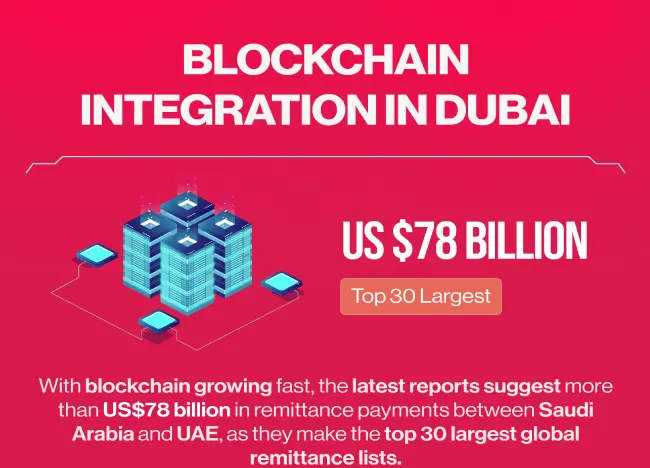Introduction
Virtual private networks (VPNs) have become a staple in the digital age, offering clients greater effective privateness, protection, and access to international content. As troubles regarding online privacy and record protection broaden, using VPNs is on the rise. This article delves into the present-day nation of VPN utilization, exploring its blessings, challenges, and future traits.

Understanding VPNs
Types of VPNs
There are numerous types of VPNs, which include:
Remote Access VPNs: Allow male or female users to hook up with a non-public community and get admission to its assets remotely.
Site-to-site VPNs: Are used by organizations to connect multiple networks across extraordinary places securely.
Mobile VPNs: Are designed to preserve a secure connection because the user moves throughout distinct networks or places.
Benefits of VPN Usage
Enhanced Privacy and Security
VPNs offer an additional layer of protection by encrypting internet traffic, making it hard for hackers, ISPs, or government corporations to reveal or intercept information. This is essential for shielding touchy facts and maintaining user privacy.
Access to Restricted Content
VPNs allow customers to skip geo-restrictions and censorship, allowing them to access content that can be blocked in their location. This consists of streaming services, web sites, and social media platforms, which are restricted based on region.
Safe Public Wi-Fi Usage
Using public Wi-Fi networks may be unstable as they are regularly unsecured and liable to cyberattacks. VPNs guard customers by encrypting their data, making sure secure surfing on public networks.
The Growth of VPN Usage
Increasing Privacy Concerns
As the focus of digital privacy problems grows, more humans are turning to VPNs to shield their online sports. High-profile data breaches and surveillance scandals have heightened these issues, driving the adoption of VPNs.
Global Adoption Rates
VPN usage is growing globally, with a tremendous increase in regions with strict net censorship and surveillance, including China, Russia, and the Middle East. Western nations are also seeing an upward push in adoption due to privacy worries and access to confined content.
Popular VPN Providers
Some of the leading VPN providers include:
- ExpressVPN: Known for its high speed and robust security features.
- NordVPN: Offers a large server network and advanced security options.
- CyberGhost: User-friendly interface with strong privacy policies.
- Surfshark: Affordable pricing with reliable performance.
Challenges and Limitations
Legal and Regulatory Issues
VPN utilization is subject to legal and regulatory scrutiny in many nations. Some governments ban or limit VPN services, making it challenging for users to get access to them legally.
Performance and Speed Issues
While VPNs enhance security, they could every now and then gradually slow down internet speeds due to the encryption method and the distance to the VPN server. Choosing a high-quality VPN company can mitigate those issues.
Trust and Transparency
Very few VPN carriers are transparent about their statistics and logging rules. It's critical to choose companies with strict no-log coverage to make certain that personal information isn't always saved or misused.
VPN Usage in Different Sectors
Individual Users
Individual users typically use VPNs for privacy, protection, and access to restrained content material. They are popular among expatriates, travellers, and privacy-conscious individuals.
Businesses and Corporations
Businesses use VPNs to secure their internal networks, allowing far-off employees to get thorough access to employer resources. This is vital for defensive touchy company statistics and maintaining operational safety.
Educational Institutions
Educational establishments use VPNs to provide stable access to resources for students and personnel. VPNs also help skip nearby restrictions on instructional content material, ensuring the same right of entry to information.
The Impact of COVID-19 on VPN Usage
Remote Work and Security
The COVID-19 pandemic has caused a surge in faraway paintings, increasing the call for stable remote access to solutions. VPNs have emerged as critical for protecting corporate data as personnel work from home.
Rise in Cyber Threats
The pandemic has additionally seen a drastic increase in cyber threats, with hackers targeting remote employees and inclined networks. VPNs provide an extra layer of security, safeguarding against these threats.
Increased demand for VPNs
With more people working, studying, and consuming content online, the demand for VPN services has skyrocketed. This trend is predicted to continue as far-flung work turns into an everlasting fixture for many.
Future Trends in VPN Usage
Integration with Emerging Technologies
The integration of VPNs with rising technologies like AI and blockchain guarantees to enhance their talents. AI can improve risk detection, while blockchain can offer decentralised and more steady VPN solutions.
Enhanced User Experience
Future VPN offerings will focus on improving user enjoyment, imparting quicker speeds, greater dependable connections, and consumer-friendly interfaces. Innovations like seamless car-joining and clever routing will enhance usability.
Focus on Zero-Trust Security Models
The zero-consider security version, which assumes that every community and device is probably compromised, will affect future VPN tendencies. This approach enhances security by continuously verifying and authenticating all get-right-of-way requests.
The State of VPN Usage
Top reasons for VPN Usage
| Reason | %age |
| To access restricted entertainment content | 50% |
| To access social networks or news services | 34% |
| To keep anonymity while browsing | 31% |
| To access sites/services at work | 30% |
| To access restricted sites | 27% |
| To hide web browsing from government | 18% |
| To access your browser | 17% |
VPN users by Age and Gender
By Age
| Age | %age of VPN users |
| 16-24 | 35% |
| 25-34 | 33% |
| 35-44 | 19% |
| 45-54 | 9% |
| 55-64 | 4% |
By Gender
| Gender | %age |
| Male | 62% |
| Female | 38% |
Frequency of VPN Usage according to global VPN users
| Frequency | VPN users ( Desktop) | VPN users ( Mobile) |
| Daily | 35% | 42% |
| 4-5 times a week | 15% | 13% |
| 2-3 times a week | 14% | 11% |
| Once a week | 10% | 9% |
| 2-3 times a month | 7% | 6% |
| Once a month | 6% | 4% |
Top Countries by VPN Usage among Internet Users
| Country | VPN penetration (%age of Internet users) |
| Indonesia | 38% |
| India | 38% |
| Turkey | 32% |
| China | 31% |
| Malaysia | 29% |
| Saudi Arabia | 29% |
| Brazil | 26% |
| Vietnam | 25% |
| UAE | 25% |
| Philippines | 25% |
Conclusion
The state of VPN utilisation is powerful and evolving, driven by developing privacy concerns, the rise of far-off paintings, and the desire for stable net access. While challenges remain, together with prison troubles and performance limitations, the destiny of VPNs appears promising with improvements in technology and increasing worldwide adoption.









